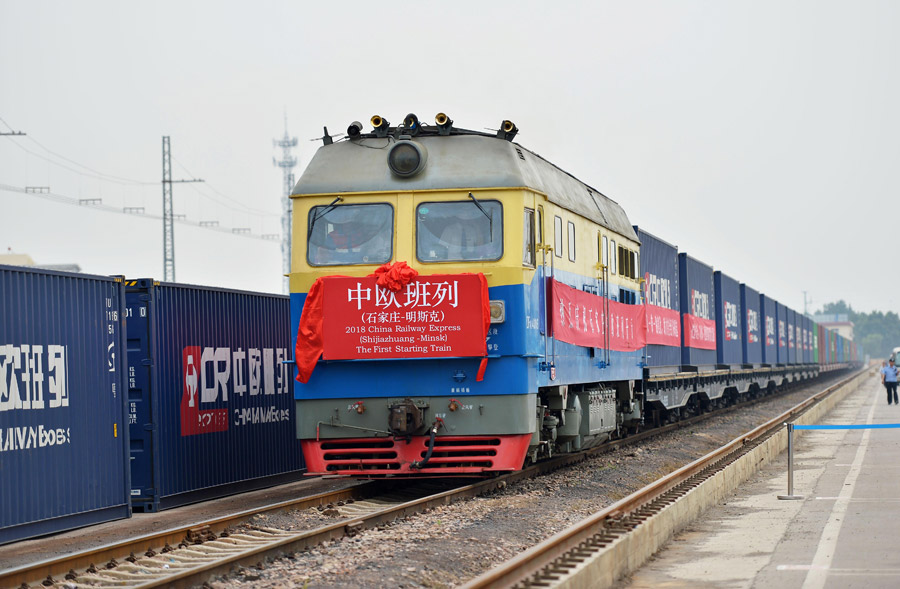Slow train to Russia plays key role in cross-border trade


"I still remember how excited I was when I drove the train across the border for the first time," he said. "From the moment the train departed, I never forgot that I should pay more attention to my behavior because I was not only representing myself, but also my country."
During the long wait to go through customs and reload, Zhang and his colleague have to stay in the train's 2-square-meter cabin because they are not allowed to leave the train after it crosses the border.
"It is extremely cold in the winter, when the temperature can drop to -40 C outside, and the floor inside is usually covered by a thin layer of ice," he said.
"While in the summer, we seldom keep the air conditioner working in order to save fuel, which makes the cab quite hot."
In March 2014, Manzhouli station welcomed its first China-Europe freight train, running from Suzhou in Jiangsu province, making the largest land port on the China-Russia border even busier.
More than 1,300 freight trains ran between China and Europe via Manzhouli last year, according to China Railway Harbin Group, which operates the service.
"Different from passenger trains, there isn't an exact time schedule for freight trains, so we're all required to be on call 24 hours a day," Zhang said.
There are 18 drivers in the cross-border team, with two assigned for each trip, he said.
"With the increase of freight volume, the departure intervals have become shorter," Zhang said, adding that sometimes he can only stay at home for 12 hours between trips.
"So in my calendar, there are no holidays, festivals or anniversaries," he said. "I feel deeply guilty that I've missed so many important family events over the years.
"Fortunately, I receive great support from my family. I hope I can devote the next 10 years to the 9.8-km railway and help transport more goods made in China to countries all over the world."


















